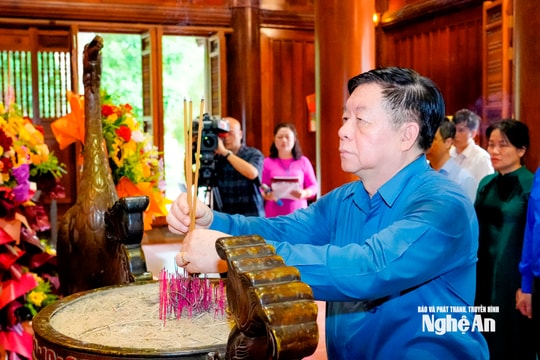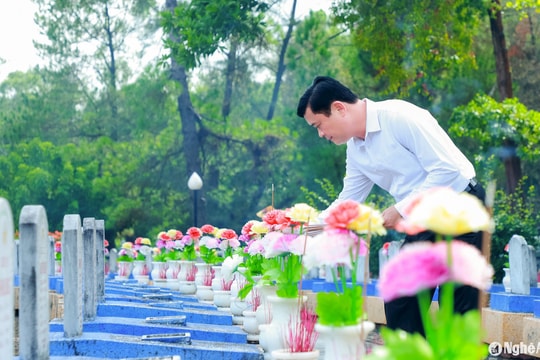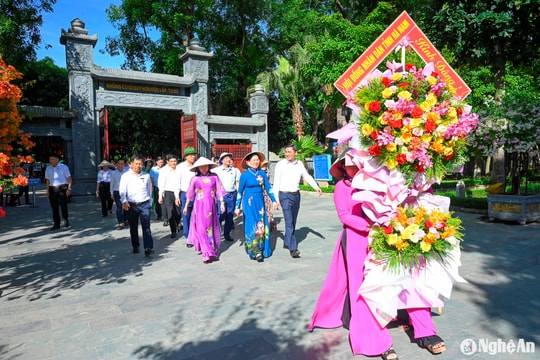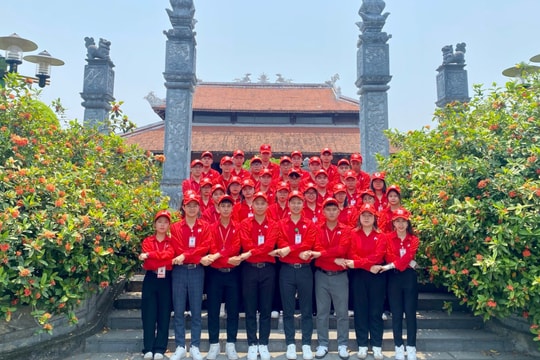Fight against patriarchy and authoritarianism
(Baonghean.vn) - Patriarchy is a lifestyle often found in men who are the pillars of the family, originating from the Confucian era. It is considered one of the remnants of the feudal system, going against the progress of society.
Since ancient times, Vietnamese people have had the tradition of “respecting tranquility, respecting love, respecting literature” - meaning the need for stability, respecting love, honoring literature and academic achievements. Vietnamese people also “respect the elderly” - that is, respecting the elderly, those who came before, those who have more experience than themselves. There is a folk saying “The royal court respects titles, village regulations respect the elderly” - that is, in the royal court, people with titles are respected, in the village, the elderly are respected.
People with a patriarchal lifestyle, but if they are smart, talented,... often solve problems quickly and thoroughly. That tradition has a positive side, teaching and educating people to live with integrity, respect the elderly, learn from people who are more qualified, capable, have more life experience, and have more experience than themselves.
Because society places too much importance on seniority, rank, and experience, many people develop a mentality of being “condescending,” “senior,” and “superior.” Gradually, they become patriarchal, official, condescending, and authoritarian. And from patriarchy only being expressed in the family, it spreads to society, including those with high positions and power.
People with patriarchal thinking are often conservative, autocratic, think they are always right, like to control everything, and always want others to do what they want.
In the family, patriarchal people often make life difficult, making others wary, fearful, and not wanting to get close, even causing unnecessary conflicts and disagreements. In the office, if a person in a leadership position, especially a leader, has a patriarchal mindset, it is easy to violate the principle of democratic centralism, and everyone's democracy is stifled.
People with patriarchal and authoritarian tendencies often hide behind the guise of “collective leadership and individual responsibility”. But in reality, they underestimate the leadership role of the collective; overemphasize their own position. They take advantage of their positions, use their ego to steer, dominate, and even overwhelm the collective Party Committee, organization, agency, and unit. The most dangerous aspect of patriarchal tendencies is the attitude and behavior of interfering in the collective’s work in the areas of recruitment, promotion, staff planning, etc., and issues related to economic and social investment programs and projects, land, finance, etc.
When solving problems or giving presentations, they consider their opinions to be superior and "conclusive"; other people's opinions are just supporting and just there for show!
People with patriarchal disease often develop prejudice, secretly or openly suppressing honest, straightforward people who have different opinions or who criticize them or the group they are in charge of.
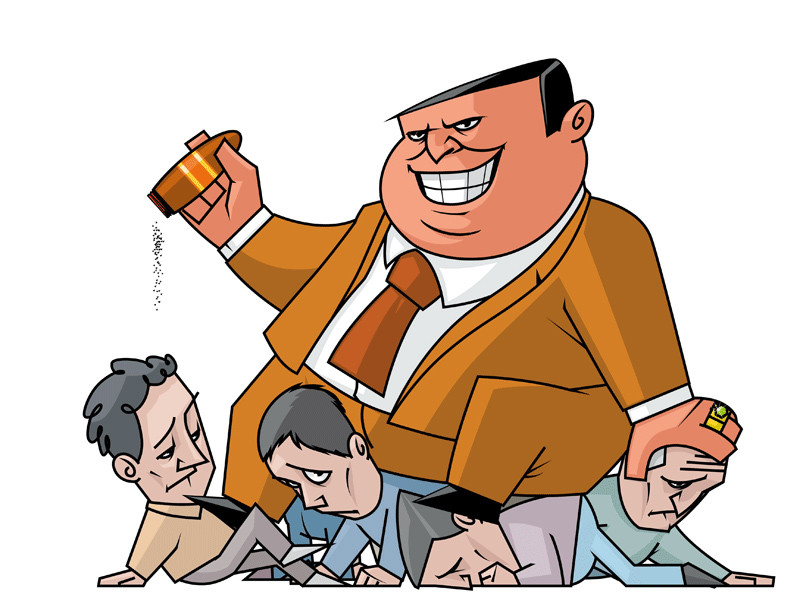 Illustration photo: Thanh Nien Newspaper Illustration photo: Thanh Nien Newspaper |
In any agency, unit, or locality where the leader is patriarchal, autocratic, or authoritarian, subordinates do not dare to express their opinions. They are afraid of being twisted, made difficult, "interrupted", suppressed, or prejudiced. From then on, many people become "automatons", with the "motto": Article one: "The leader is always right", article two: "Look at article one",... If the leader is patriarchal and autocratic, subordinates will always have a mentality of worry and unnecessary fear; "there is no way to avoid fighting"!
However, it is necessary to understand that when a cadre holds a certain position, he/she must avoid being easygoing, "peace is precious", following the masses. He/she must have a breakthrough, outstanding thinking, and a decisive style of a leader. Because of the principles and mechanisms of our current leadership and management, in addition to promoting the role of the collective leadership, we must promote the role of the individual in charge, and respect the decisiveness of the leader. Dare to speak, dare to do, dare to take responsibility. Determination, courage, and decisiveness are very necessary qualities of a leader. Only with decisiveness skills can one have the ability to make decisive, strong decisions, and handle new and urgent problems posed by life and practice. The problem is that only by making the right decisions, for the common good, and crystallizing the collective's wisdom can one demonstrate the talent and virtue of a leader and manager.
Being steadfast but not rigid, courageous but not reckless, decisive but not autocratic, only then will one form the true qualities and qualifications required of a leader and manager.
Patriarchalism is a terrible thing. When the young government was just born, Uncle Ho warned that cadres with patriarchal attitudes "think that being in a government agency makes them gods", "rely on their position in this or that department, then become arrogant, unrestrained, and get whatever they want", from there "look down on the people, speak ostentatiously, and always act like they are "revolutionary officials". They do not know that such an arrogant attitude will lose the trust of the people and will harm the prestige of the government".
Recently, General Secretary Nguyen Phu Trong pointed out: "Some people with positions and power maintain a mandarin and patriarchal style" and "have an attitude of contempt for the masses, do not listen to the opinions of workers, and oppress the masses."
We are building an open society, with increasingly high levels of education and democracy being increasingly expanded. Every cadre and party member, especially those with positions and power, must have a humane way of thinking and behaving, a scientific style of leadership, direction and management, for the progressive development of organizations, agencies and units; for the peaceful and happy life of the people. Arrogant and authoritarian behavior is a remnant of the feudal regime. It is completely foreign and contrary to the progressive thinking, receptive attitude, democratic and scientific style of communists.
You cannot "yes" to the eighth child, or the fourth child, but do not hide behind it, do not justify it by saying that it is because of too much work, frustration, and impatience because of work that you become patriarchal, authoritarian, arbitrary, and undemocratic. When cadres truly sympathize and share with the masses, then the masses will respect you, as Uncle Ho taught: "We must love and respect the people, then the people will love and respect us." That is also the basis for preventing and stopping the disease of patriarchy./.


